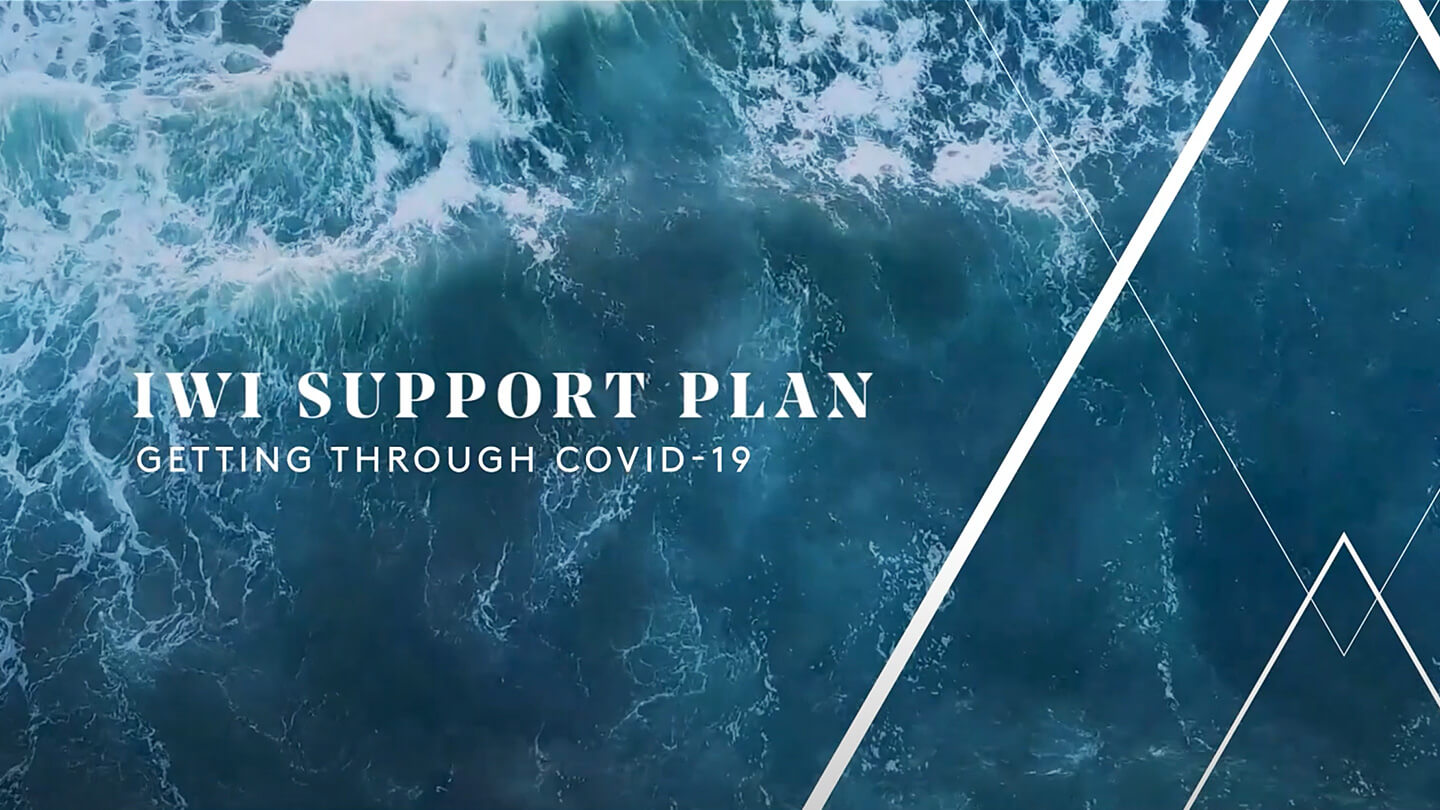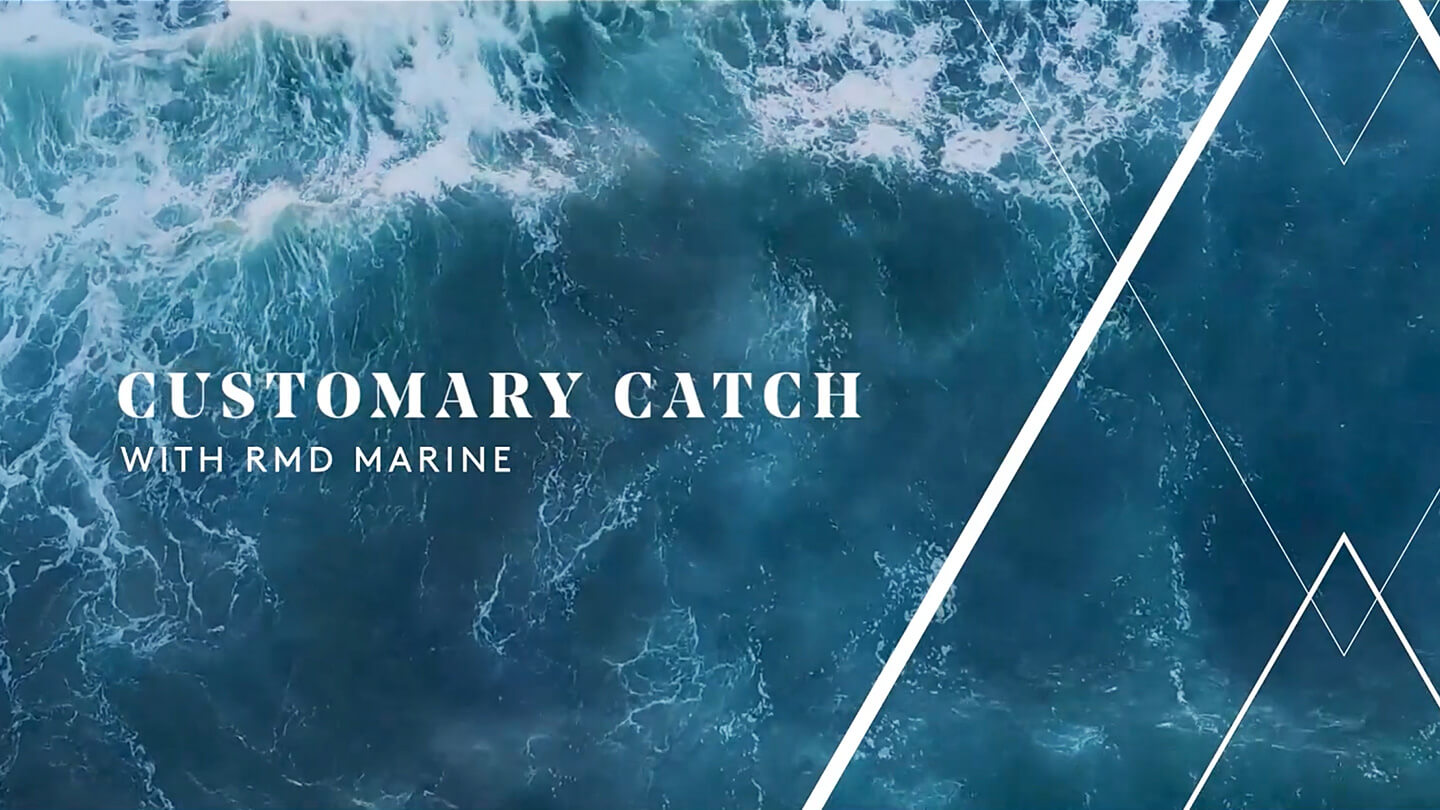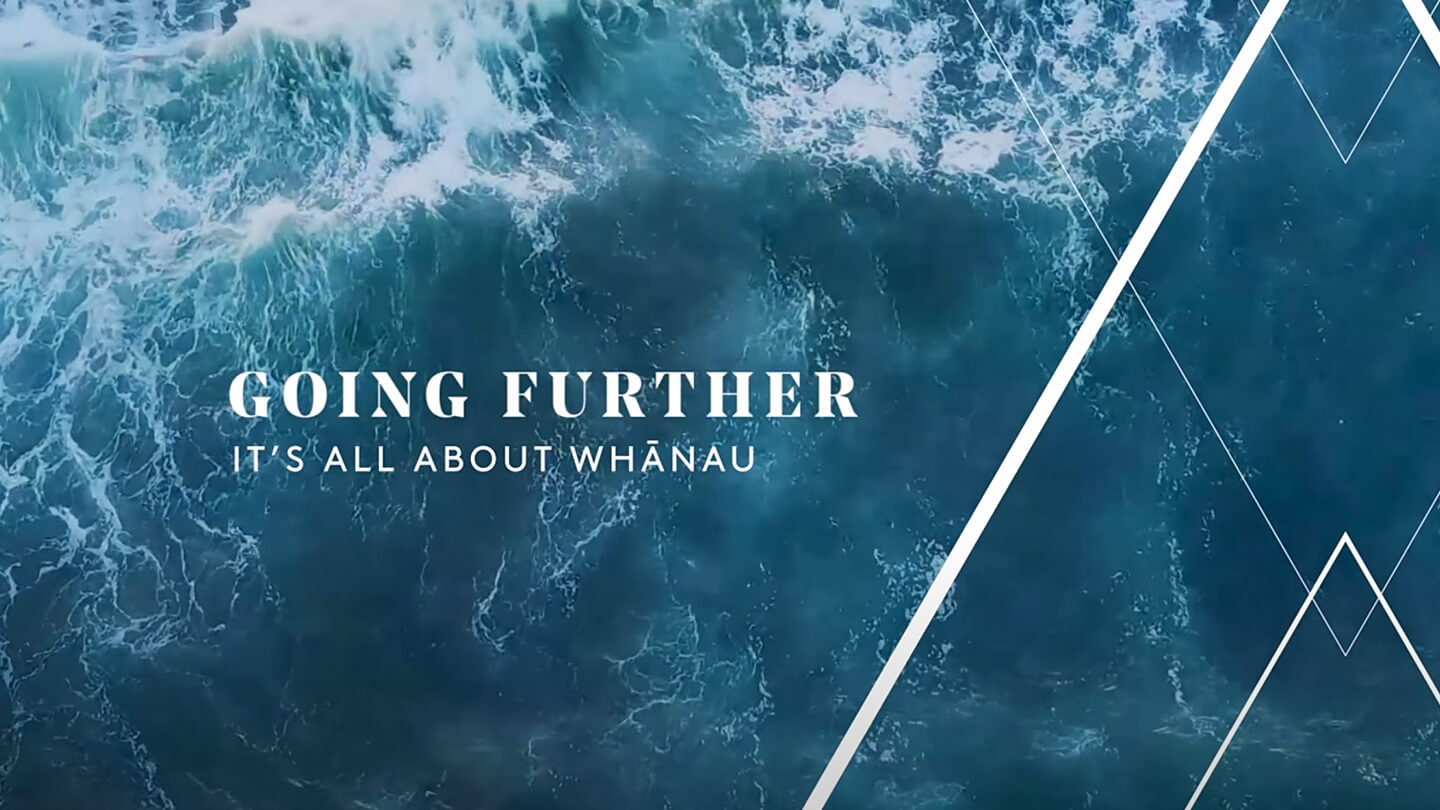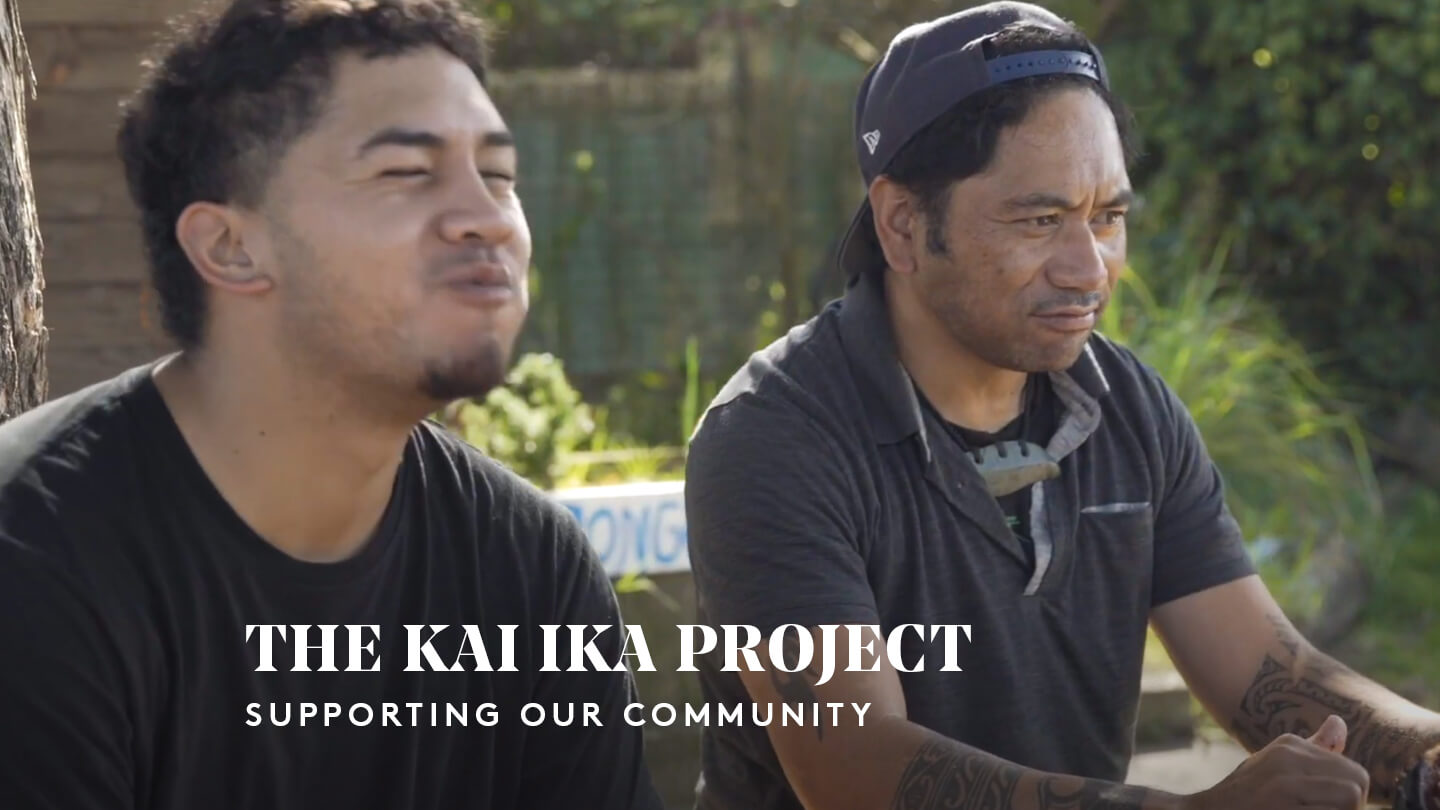Strengthening bonds
Moana New Zealand is privileged to enjoy strong partnerships with Iwi, customers, suppliers, fishers and third parties built through value creation with far reaching benefits for all Māori. We consider partnerships critical to our commercial performance.
We welcome new partners across science and academia providers in line with our sustainability strategy and role as guardians of kaimoana and kai ora assets.
Kōura has been a standout species this financial year. In this section we share the thoughts of Grant Absalom, Chief Executive Officer of Port Nicholson Fisheries, who reflects on the strength of Māori lobster exports globally.
We celebrate ten years with Iwi Collective Partnership which manages sixteen long-term Iwi commercial associations on our behalf and grows in stature. Here we review learnings and benefits of the first ten years and what the next ten could look like.
Sealord has had another productive year. Here you will read about its sponsorship of a vaccination clinic through a Māori cultural organisation. It has also been working with local Iwi to get more Māori employed.
Supporting Iwi through Covid19 in the regions
In response to the global pandemic, Māori organisations banded together to support whānau through the supply of Ika.
Ngāti Ranginui Fisheries provide for their people through customary catch permits, caught by RMD Marine, processed through Bay Packers and distributed by Ngāti Ranginui Fisheries.
In 2018 Moana New Zealand, along with Te Arawa Fisheries, Ngā Rauru, Ngāti Tuwharetoa Fisheries and Ngāti Ranginui Fisheries purchased Bay Packers.
Located in Tauranga, Bay Packers is an export business focused on tuna/swordfish.
Moana New Zealand is fortunate to have a strong network of Māori organisations it works with which have a shareholding in Moana New Zealand.
Charlie Rahiri – Ngāti Ranginui, Ngāi Te Rangi, Ngāti Paoa
Our iwi response to Covid has been a deliberate one. We learnt a lot of lessons from lockdown in 2020. So with that, we developed an Iwi Response Plan which meant that the entities of Ngāti Ranginui iwi would work together.
Through this lockdown our fisheries trust and Te Rūnanga o Ngāti Ranginui have worked to enable the access of customary fish and Pataka fish for our people.
The lockdowns have a negative effect on many of our whānau. We also know that we have proximity and reach through our hapū, through our marae to these people. A lot of our people aren’t on the social service radar. A lot of our people aren’t the usual people who would access kai (food) support and are often whakamā (shy).
So in doing this mahi, we wanted to shift our thinking away from a chartable model of support, more to a dignified model of support in terms of ‘this is your right as a member of our iwi, this is your right as a member of your hapū and of your marae’.
I guess we’re fortunate to have Bay Packers as a commercial entity and a company. It’s a partnership between five partners. There’s Ngāti Ranginui Fisheries, Te Arawa Fisheries, Tūwharetoa, Ngā Rauru and Moana.
We’re distributing filleted fish, we’re distributing fish bones which a lot of our people like in fish heads when we can. We know that when we’re delivering to our whanau we’re only scratching the surface but we put it out as wide as we can for our whānau to come.
In terms of kai distribution, the Iwi Response Plan is to be the centralised hub and then straight out to our hapū.
Dan Rawlinson, co-owner of RMD Marine and skipper of Margaret Phillippa, says: “There are a lot of people struggling, so we gave some away. Hopefully it puts a smile on some faces and fills up some puku.”
The Rawlinson whānau are of Ngāti Awa descent. Three brothers, their Mum, wives and children form RMD’s daily operations.
Brother Roger who skippers the Santy Maria out of Mangonui supplied fish for Northland Iwi.

“We supported the local hapu around the area and it’s especially significant because they are also shareholders in Moana New Zealand which is a company I fish for. As a Māori fisher, it’s a perfect fit for me. For me to help out Moana and their shareholders is something I’m keen to do.”
Moana New Zealand doesn’t own any fishing vessels, instead, it contracts a fleet of whānau owned-and-operated businesses which share its values.
Play Video“We pay our crew as we normally would, really the costs are coming back to me and my family but the benefits outweigh the costs because I know we’re helping so many people. That’s what I’m about,” says Roger.
Moana New Zealand also supported a network of not-for-profit Māori organisations, One Whānau at a Time, Food Rescue and Ngāti Hine Toa a Muriwai Māori Women’s Welfare League which supported kaumatua and kuia throughout Northland with cooked meals.
Founder, Hone Martin, says: “Two weeks ago we gave out one meal. When Moana’s koha came in it blew me away.
Mark Ngata, General Manager of Inshore for Moana New Zealand, says: “As essential workers, it’s a privilege to operate through changing alert levels and provide kaimoana to our whānau in the regions.
“This is only possible through the mahi of our fishers and their whānau. We can supply domestic and export markets but also provide for our marae. Partnerships with other entities which are busy in the communities helping our people make it a good feeling.”
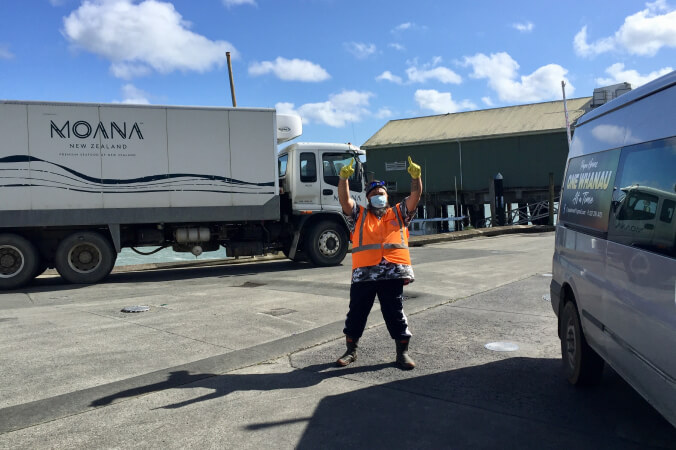 Hone Martin - founder of One Whānau at a Time
Hone Martin - founder of One Whānau at a Time
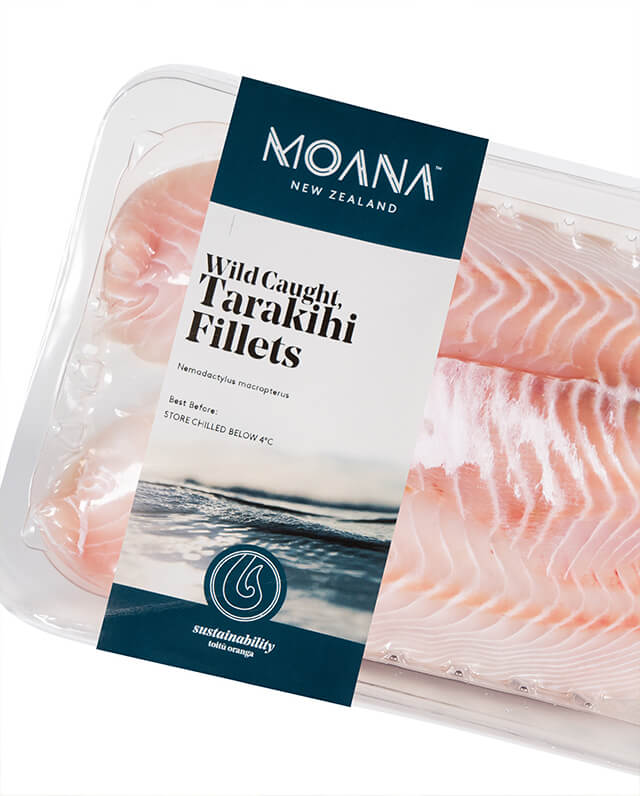
Roger Rawlinson, RMD Marine Owner – Ngāti Awa
Dan Rawlinson, RMD Marine Owner – Ngāti Awa
Quanah Curreen – One Whānau at a Time Chef
Roger: Today I’m fishing customary permits to a couple of the local hapū and the catch is snapper and kingfish. We like to support the local hapū around the area, it’s especially significant because they are also shareholders of Moana New Zealand. As a māori fisher, it’s a perfect fit for me.
Dan: We’ve got 500kgs of ika (fish) going to a local iwi in the Bay of Plenty here. Something little that we can do as a fisher family. There are people out there struggling.
Roger: There is a big need and it’s welcomed this fish. There are a lot of people really happy to receive it.
Quanah: With the fish that we got from Moana, we’ve been handing it out to marae, to whānau in need. That one tonne that Moana gave us of fresh snapper today, which is incredible, already that fish is processed and going back out to whānau that need it.
Roger: I get a really uplifting feeling when this fish goes to the needy and hungry kids. I know that fish has gone to a good home. I’ve caught it, now they’re eating it and they’re happy. It makes me happy that it’s going to a good place.
Achieving better leverage in the kōura market
Back in 2015-16 we announced our joint venture partnership with Port Nicholson Fisheries which for Moana New Zealand, meant a 60 percentpartnership value.
That makes Māori a force in exporting live lobster to the world based on an original concept to achieve better leverage in the market.
Chief Executive Officer for Port Nicholson Fisheries, Grant Absalom, says that the limited partnership model is one of the more successful across Aotearoa.
Most importantly, he feels it demonstrates to Iwi that Iwi can work together.
“Other Iwi have come on board since 2015 so it means we’re in the market all the time. We now have representation through the entire North Island, to the top of the South Island and the Chatham Islands.
“It also gives us a mix of fish through all grades from double grades right through to Fs which means that we can supply year-round.
“We get better intel and leverage because key distributors in China know we have the ability to supply consistently. That’s really important as China is our biggest market,” he says.
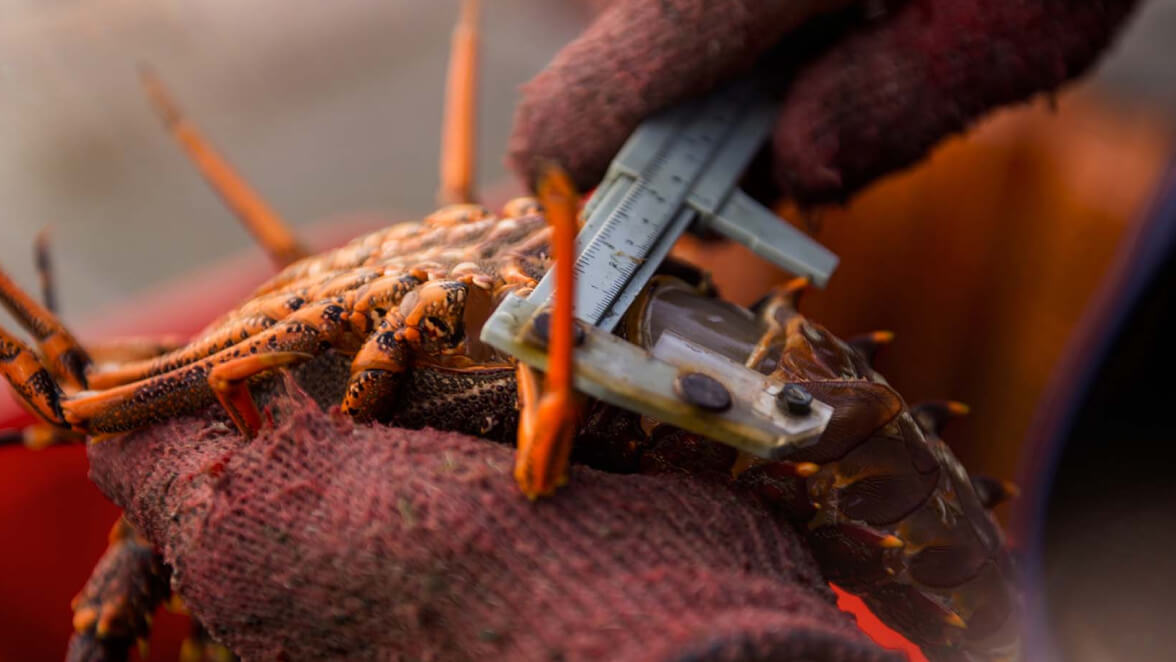
“That’s why we hired an international business development manager who is fluent in Mandarin and challenges us. Number one is market knowledge of China and drilling into the food service and restaurant trade to see if there’s a way in.”
In signing the joint venture partnership and getting all Iwi on board over time, taking a conservative approach to fisheries management and healthy kōura stocks represents a shared vision for the future between Moana and Port Nicholson.
That is in line with organisational tikanga and to better understand ways of working together since Māori will always be involved in commercial fisheries.
Testament to that is intelligent leadership and decision making around shared use of existing resources and infrastructure facilities.
On the Chatham Islands, Port Nicholson has a depot at Owenga and Moana New Zealand’s depot is
Neither organisation is comfortable simply putting in kōura pots around Aotearoa and not giving back. That has been considered thoughtfully in the context of the partnership through community sponsorship.
“We sponsor the school pool and fly an instructor in to teach the kids how to swim,” says Absalom.
“We sponsor youth rugby, netball, the fishing competition. We’re also doing a suicide prevention programme on the Chathams.”
Clearly it is the people propelling growth of our joint venture partnership with Port Nicholson Fisheries.
Absalom says support his staff receive from Moana staff is noteworthy and there is opportunity to grow that.
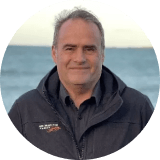
“We’ve had access to Moana Prepared Foods in Palmerston North. We have Moana pāua in our factory and if they’re short, we help out. If we’re short, they help us.
“The model has stayed the same but collaboration between the two entities
“It’s good value.”
A Decade of Growth
This year Moana New Zealand and the Iwi Collective Partnership (ICP) celebrate ten years of collaboration,
a significant milestone.
The ICP draws together Iwi to collectively optimise commercial fishing interests, underpinned by kaitiakitanga and tikanga Māori.
Chief Executive, Maru Samuels, reflects on learnings and benefits of the
“Inshore commercial fishing is a challenging business. Our collaboration model has not only given us insight into those challenges but has deepened our understanding of the Moana business.
The ICP flow through 1.5 thousand tonne of ika, pāua and highly migratory quota providing significant value both to Moana and wider iwi shareholders.
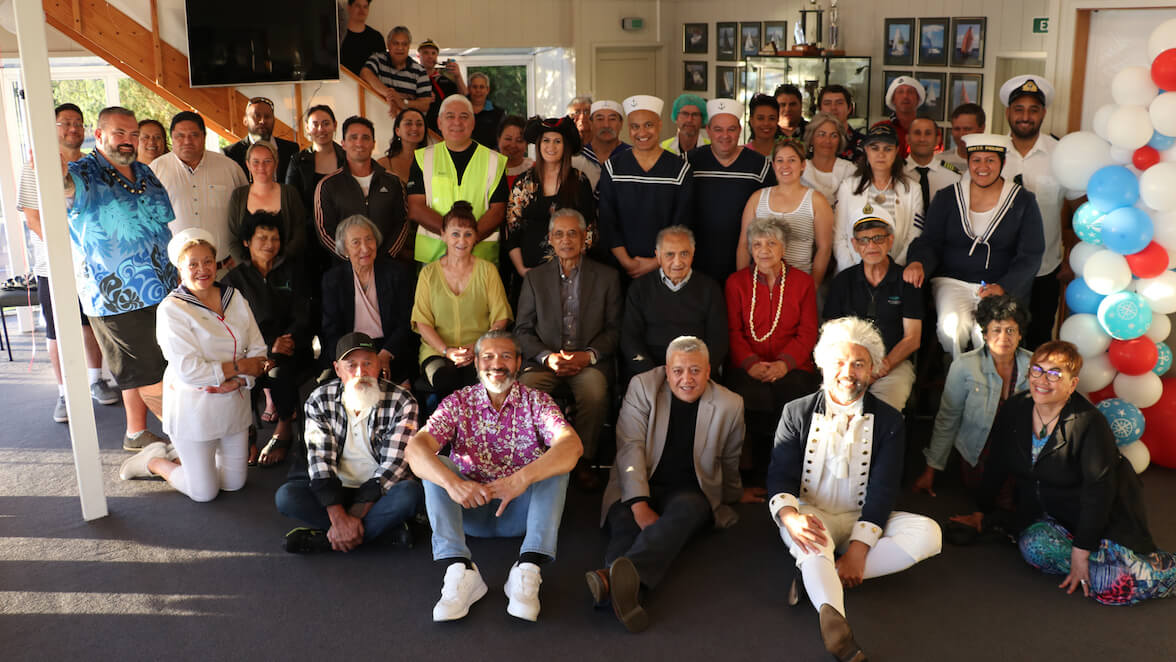
ICP Christmas Function, Tāupo 2020
After a decade, the parties will review the flow of value – to assess all the different aspects which contribute to value beyond dollars and cents.
“There is more to do to better address the growing inshore finfish challenges. The ICP is undertaking research on how tikanga and mātauranga can assist in
Iwi have matured in the decade and for some their needs and aspirations have evolved to explore new opportunities.
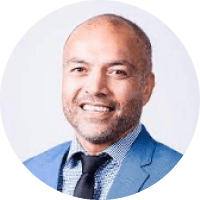
It's all about whānau
It’s a privilege to share this story from Ngāti Kahungunu ki Wairarapa whānau. They share with us what a partnership with Moana New Zealand has meant for them. It’s all about whānau.
Sue Taylor —
Ngāti Kahungunu ki Wairarapa / Raukawa ki te Tonga
Peter Sue —
Ngāti Kahungunu ki Wairarapa
Sue: Pāua harvesting has been really a blessing for us. It's helped us meet some of our aspirations and having that relationship with Moana New Zealand and prior to that with Ocean Ranch has certinaly contributed to that.
Peter: Who taught me to dive, was my Uncle Matt. I would be at his side when I was seven, eight, ten. I can remember diving when I was eleven and remember doing a bit of commerical diving when I was 15. You get out there and do the serious stuff and it is serious stuff. It’s not easy work, it’s hard hard work.
Sue: I think our commenaility with Moana New Zealand is that it’s about whānau, they are a whānau.
Our focus for the past 20 years has been on getting the marae up but one of the hurdles has been ‘how are we going to raise funds to build our marae’. Because we’ve got a fishing background, becasuse we’ve been dealing with pāua for a number of years, we thought why don’t we actually expand into a business of pāua harvesting.
Peter: Moana has been one of the biggest contributors. We’re using Moana as a vessel because we can springboard off our marae, once our marae is up.
Sue: Not only will Mutu Wairaka be there to do commerical so that we can sustain and have economic development, but paramount to that is our cultural home. Our marae will feature pāua in it because that’s basically what it was built on, through havesting pāua. This is about whānau, we’re not making money for ourselves and I think its the same as Moana, there is money to be made but actually it’s for māori and that’s the sort of business they’re into. Building an economic base to continue so that māori have a stake in fisheries.

